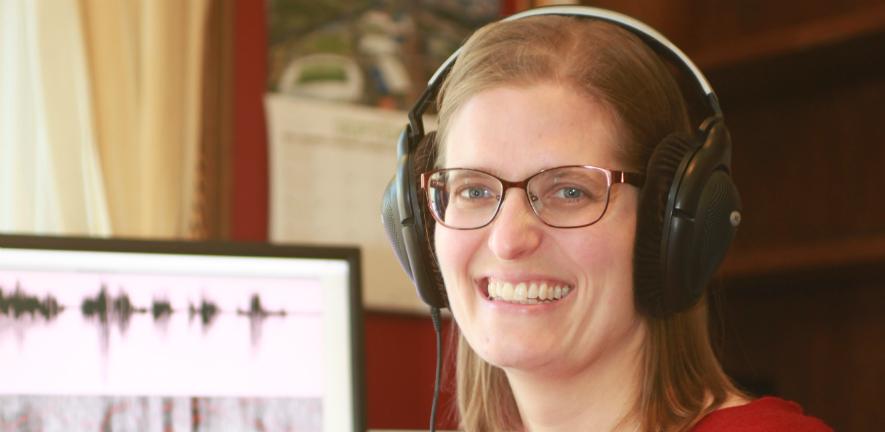
Submitted by Jane Durkin on Tue, 17/12/2019 - 12:56
Congratulations to Cambridge Language Sciences network member Dr Kirsty McDougall and her team on securing Economic and Social Research Council funding worth £880,000 for their new project on ‘Improving Voice Identification Procedures’ (IVIP).
IVIP is an exciting 3-year interdisciplinary project on earwitness evidence and voice parades – the identification technique analogous to a visual identity parade, which is used when a voice has been heard at a crime scene and the victim or a witness believe they could recognise it if heard again. The project aims to improve the understanding of earwitness behaviour and to improve the interaction of the criminal justice system with the use of earwitness evidence.
Kirsty will be the principal investigator, collaborating with six co-investigators in linguistics, psychology, criminology and law from Cambridge, Oxford, Nottingham Trent and De Montfort Universities.
The project has four main strands:
The first strand will examine aspects of voice parade construction and execution (e.g. length of samples, number of foil voices, witness instructions, parade type), with a view to modifying the procedure to optimise earwitness performance.
The second strand, which Kirsty will lead in collaboration with Prof. Francis Nolan from the Cambridge Phonetics Laboratory, will investigate from a phonetic perspective why it is that certain speakers are more distinctive-sounding than others and whether speakers judged to be more distinctive are also more memorable.
The third strand will study the degree to which social perceptions, judgements, attitudes and stereotypes related to voice(s) can motivate witness decision-making during voice parades. In other words, are some voices more criminal-sounding than others?
The final strand will assess and evaluate the extent of police and legal practitioners' awareness and experience of voice parades, beliefs about earwitness memory, attitudes to conducting voice parades and how earwitness evidence is received in court.
Impact activities involving communication with stakeholders including forensic phonetic practitioners, police, legal practitioners and the judiciary will form a key dimension of the project.
Kirsty McDougall is a Senior Research Associate and Affiliated Lecturer in the Theoretical and Applied Linguistics Section and a Fellow of Selwyn College. She is a phonetician, with particular interests in speaker characteristics, forensic phonetics, and the phonetic realisation of varieties of English. Her research has, among other things, highlighted the importance of dynamic as opposed to static features of speech (particularly formant frequencies) for characterising differences between speakers and developed robust techniques for the selection of foils for voice parades.
